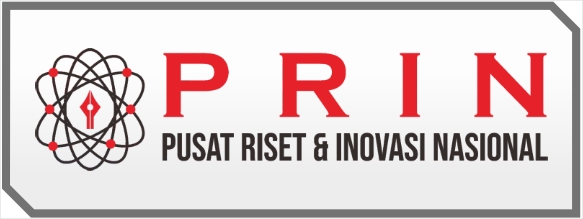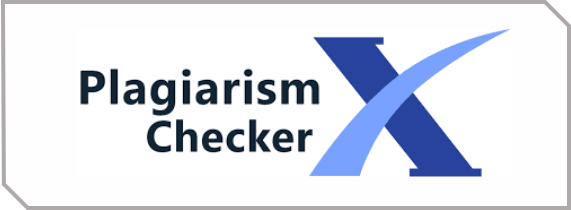Karakteristik Kondisi Lingkungan Fisik dan Praktik Pemberantasan Sarang Nyamuk Terhadap Kejadian Demam Berdarah Dengue di Kota Medan
DOI:
https://doi.org/10.62027/vitamedica.v2i2.103Keywords:
Physical environment, PSN, Prevalence of DHFAbstract
Dengue hemorrhagic fever is a communicable disease which is caused by dengue virus and transmitted through the bite of Aedes aegypti or Aedes albopictus. The high prevalence rate of dengue hemorrhagic fever is resulted from the poor condition of physical environment and practice of mosquito nest eradication. The research objective was to know the characteristics of condition of physical environment and practice of mosquito nest eradication (referred to as PSN) toward dengue hemorrhagic fever incident in Medan, in 2024. This is an descriptive research. The population was 98 households in Medan; the samples were 49 households. The data were collected through questionnaires and observations. The data analysis methods consisted of univariates. The univariate analysis results demonstrated that the dengue hemorrhagic fever cases had higher prevalence rate in August (41%) at Puskesmas PB Selayang II (43%), and had dominant attack on 3-14 year old people (39%) as well as on females (59%). It is recommended that Puskesmas and local government are expected to work togenther in implementing mosquito nest eradication program and for the community is expected to pay attention to lighting at home an water reservoirs both inside and outside the home.
References
Achmadi, U.F. (2012). Dasar-dasar penyakit berbasis lingkungan. Jakarta: Universitas Indonesia (UI-Press).
Manajemen berbasis lingkungan solusi mencegah dan menanggulangi penyakit menular. Jakarta: Elex Media Komputindo.
CDC. (2010). Epidemiology Dengue Homepage. Diakses dari http://www.cdc.gov/dengueepidemiologi/index.html
Depkes RI. (2005). Pemberantasan Nyamuk Penular Demam Berdarah Dengue (Buku 3). Diakses dari file:///C:/Users/Admin/Downloads/buletin-dbd.pdf
Depkes RI. (2007). Pemberantasan Sarang Nyamuk Demam Berdarah Dengue (PSN DBD) oleh Juru Pemantau Jentik (Jumantik). Diakses dari https://www.depkes.go.id/article/view/16061600003/pemberdayaan- jumantik-untuk-mendukung-gerakan-psn-3m-plus.html
Depkes RI. (2008). Perkembangan Kasus Demam Berdarah di Indonesia. Diakses dari http://www.depkes.go.id
Desvina, Pane, A., & Ratnawati. (2014). Penerapan model vector autoregressive (VAR) untuk peramalan curah hujan Kota Pekanbaru. Jurnal Sains, Tekhnologi dan Industri, 11(2), 151-159.
Najmah. (2016). Epidemiologi penyakit menular. Jakarta: TIM. Notoatmodjo, S. (2012). Promosi kesehatan dan ilmu perilaku. Jakarta: Rineka Cipta.
Peraturan Menteri Kesehatan Republik Indonesia Nomor 1077 Tahun 2011 tentang Pedoman Penyehatan Udara dalam Ruang Rumah. Diakses dari http://www.flevin.com/id/lgso/legislation/Mirror/czozMToiZD1ibisyMDExJmY9Ym4zMzQtMjAxMS5wZGYmanM9MSI7.pdf
Sumantri, A. (2010). Kesehatan lingkungan & perspektif islam. Jakarta: Kencana. Susanto. (2007). Perumahan (Housing), Program Studi Ilmu Keperawatan, Universitas Jember. Diakses dari http//elearning.unej.-ac.id/courses/IKUa11e/perumahan.ppt?cidR eg=IKU9bf2.
Suroso. (2004). Epidemiologi dan penanggulangan penyakit Demam Berdarah Dengue (DBD) di Indonesia saat ini. Jakarta: FK UI.
Widoyono. (2011). Penyakit tropis epidemiologi, penularan, pencegahan dan pemberantasannya. Jakarta: Erlangga.
World Health Organization. (2005). Pencegahan, Pengendalian Dengue dan Demam Berdarah, Terjemahan oleh Palupi Widyastuti. Jakarta: EGC.
World Health Organization. (2009). Dengue: Guidelines for Diagnosis, Treatment, Prevention and Control-New Edition. Jakarta: EGC.
World Health Organization. (2014). Dengue and Severe Dengue. Diakses dari http://www.who.int/media centre/factsheets/fs117/en/
Zen, S. (2012). Biokontrol jentik nyamuk Aedes aegypti dengan predator ikan pemakan jentik sebagai pendukung materi ajar insekta. Jurnal Universitas Muhammadiyah Metro, 3(1), 11-20.
Downloads
Published
How to Cite
Issue
Section
License
Copyright (c) 2024 VitaMedica : Jurnal Rumpun Kesehatan Umum

This work is licensed under a Creative Commons Attribution-ShareAlike 4.0 International License.

















